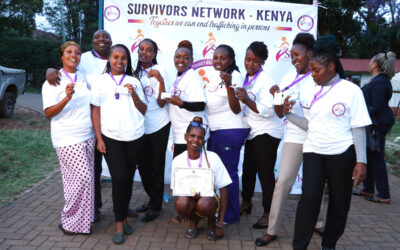Ghana is one of the world’s top 10 gold producers, providing international refiners with gold that is eventually sold to banks, jewelers, electronics manufacturers and others. But a new investigation by Human Rights Watch (HRW) unearths how gold extracted by child hands in Ghana ends up in the global gold supply chain.
HRW’s long awaited report was released this morning in Accra: Precious Metal, Cheap Labor: Child Labor and Corporate Responsibility in Ghana’s Artisinal Gold Mines.
Investigators found that traders buy gold at or near informal, “artisanal” mining sites and take little to no precaution to determine if the gold was produced through child labor. Some traders bought directly from children at illegal sites, HRW says. Ghana’s gold refining companies, including the government-owned firm, do not have sufficient procedures in place to eliminate the risk of child labor in the supply chain, the report says. HRW also found that due diligence by international refining companies is weak.
The researchers reached deep into Ghana’s so-called “galamsey” mining regions, with help from grassroots groups including Free the Slaves front-line partner organizations. HRW documented numerous cases of worst forms of child labor and sexual exploitation.
Children as young as 9 work long hours to “pull the gold ore out of shafts, carry and crush loads of ore, and process it with toxic mercury,” HRW says. Young girls miss school to work at mining sites selling food, where they are often sexually exploited by older men.
Though the Ghana government has made efforts to address child labor in mining, “its systems to monitor and eliminate child labor function poorly,” according to HRW. Education remains elusive or of poor quality for many children, and small-scale miners that wish to establish legal and regulated sites (which are more likely to be child labor-free) face difficult bureaucratic hurdles, the report says.
The report makes important recommendations to the government and to gold companies to ensure child exploitation is eliminated in Ghana’s mining sector: The government of Ghana should address the underlying causes of child exploitation through social protection programs and more investment in education; it should formalize unlicensed small-scale mining sites; it should better enforce regulations on child labor; and it should “establish a robust due diligence process for the gold trade.”
While HRW does not call on a boycott on gold from Ghana, it does call on Ghanaian companies and gold refiners to “establish effective due diligence procedures for the whole supply chain to prevent the use of child labor, conduct awareness-raising and training with their suppliers, and make sure they are in full control of their supply chain.”
The report’s release comes as activitsts worldwide prepare for Friday’s World Day Against Child Labor, organized by the U.N. International Labor Organization.
The HRW findings are similar to earlier Free the Slaves research. Learn more about FTS work to protect children in mining on our Ghana webpage.



